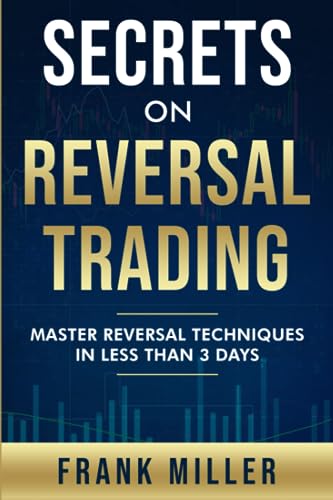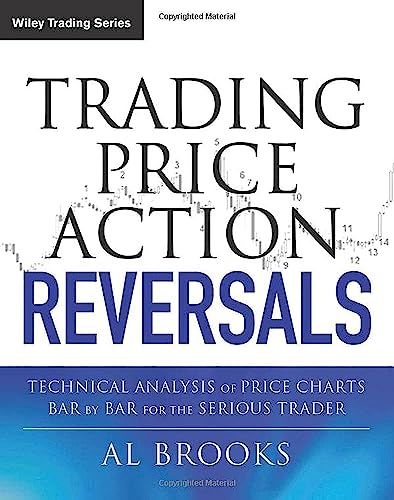- Miller, Frank (Author)
- English (Publication Language)
- 92 Pages - 11/01/2020 (Publication Date) - Independently published (Publisher)
Introduction
Reversal trading is a powerful strategy that can significantly boost your profit potential in the financial markets. By identifying key reversal patterns, traders can take advantage of market shifts and capitalize on potential price movements. In this article, we will explore the concept of reversal trading and how it can enhance your trading strategy.
Understanding Reversal Trading
Reversal trading involves identifying trend reversals in the market. It is based on the idea that when a trend reaches its peak or bottom, it is likely to reverse direction. Traders who specialize in reversal trading aim to enter the market at the early stages of a trend reversal, allowing them to profit from the subsequent price movement.
Key Reversal Patterns
There are several key reversal patterns that traders often look for when implementing a reversal trading strategy. These patterns include:
1. Head and Shoulders: This pattern consists of three peaks, with the middle peak (the head) being higher than the other two (the shoulders). It indicates a potential trend reversal from bullish to bearish or vice versa.
2. Double Top/Bottom: This pattern occurs when the price reaches a high point (double top) or a low point (double bottom) twice, indicating a potential reversal in the opposite direction.
3. Engulfing Candlestick: This pattern involves a large candlestick that completely engulfs the previous candlestick. It suggests a reversal in the prevailing trend.
Implementing a Reversal Trading Strategy
To effectively implement a reversal trading strategy, traders need to combine technical analysis with risk management principles. Here are a few steps to get started:
1. Identify potential reversal patterns: Use technical analysis tools and indicators to identify key reversal patterns in the market. Pay attention to price action, candlestick patterns, and trend lines.
2. Confirm the reversal signal: Once a potential reversal pattern is identified, wait for confirmation signals such as a break of a trend line, a significant price movement, or a change in market sentiment.
3. Set entry and exit points: Determine your entry and exit points based on your risk tolerance and profit targets. Consider using stop-loss orders to limit potential losses in case the reversal fails.
4. Monitor and adjust: Continuously monitor the market and adjust your strategy accordingly. Be prepared to exit a trade if the reversal fails to materialize or if new information suggests a change in market conditions.
Conclusion
Reversal trading can be a valuable addition to your trading arsenal, allowing you to capitalize on trend reversals and boost your profit potential. By understanding key reversal patterns and implementing a well-defined strategy, you can enhance your trading performance and take advantage of market opportunities. Remember to always conduct thorough research, practice risk management, and stay disciplined in your trading approach.
- Miller, Frank (Author)
- English (Publication Language)
- 92 Pages - 11/01/2020 (Publication Date) - Independently published (Publisher)
- Hardcover Book
- Brooks, Al (Author)
- English (Publication Language)
- 576 Pages - 01/24/2012 (Publication Date) - Wiley (Publisher)
- Pecaut, Rayner (Author)
- English (Publication Language)
- 71 Pages - 08/04/2022 (Publication Date) - Independently published (Publisher)
- Aziz, Dr. Andrew (Author)
- English (Publication Language)
- 366 Pages - 07/28/2016 (Publication Date) - CreateSpace Independent Publishing Platform (Publisher)




